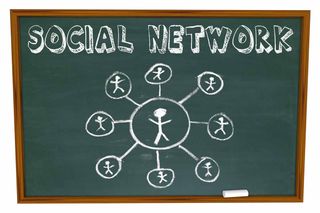Many under-age kids are using social networking
One in four of of the country's pre-teen internet users have Facebook, MySpace or Bebo accounts, despite all three sites having minimum age limit of 13.

A quarter of UK internet users aged eight to 12 have profiles on Facebook, MySpace or Bebo, despite all three social networks requiring users to be at least 13.
Ofcom's annual Children's Media Literacy Audit revealed that one in four of the UK's youth held profiles on the social networks, with 17 per cent of their parents completely unaware of what they were doing.
Among the children themselves, under-age social network users are increasingly security conscious, however, with five out of six having set their profiles so only known friends can view their details, and four per cent having totally private profiles.
It's not just social networks the country's web-savvy youth are spending their time visiting: the communications watchdog reports that information websites such as Wikipedia are visited by 18 per cent of under-12s, and nearly half of 12- to 15-year-olds.
And the country's youth aren't taking everything they read online at face value, either though pre-teens are more likely to do so than older children. Seven out of 10 younger children told Ofcom they found information on such sites to be all or mostly true, a figure dropping to 48 per cent among older children.
There's also a healthy dose of scepticism among the UK's youngest web users when it comes to social networks with just 38 per cent of eight-to-11-year-olds and 40 per cent of 12-to-15-year-olds believing the information on Facebook and the like is true. However, one in four of the older age group said they believed search engines only returned results from sites with truthful information.
The study surveyed more than 7,000 adults and children around the UK, and was commissioned by Ofcom's media literacy unit.
Get the ITPro. daily newsletter
Receive our latest news, industry updates, featured resources and more. Sign up today to receive our FREE report on AI cyber crime & security - newly updated for 2024.
The results are likely to cast fresh attention on sign-up procedures for the likes of Facebook and its fellow and rival social networks. At present, Facebook requires users wishing to set up a profile to type in their age, but there is no verification process, with Facebook insisting it is the responsibility of parents to make sure their children are kept clear of sites they aren't old enough to access.
Earlier this month, the site also rejected calls to add a Child Exploitation and Online Protection Centre (CEOP) panic button to users' profiles in the wake of the murder of 17-year-old Ashleigh Hall, who was killed by a 33-year-old convicted rapist posing as a teenage boy.
Aside from social networking trends, the Ofcom survey also looked at the youth's perception of digital piracy. While the number of eight- to 15-year-olds who downloaded or watched TV online only rose from 17 per cent in 2008 to 21 per cent a year later, nearly half of 12- to 15-year-olds said they believed sharing music and movies should not be illegal.




